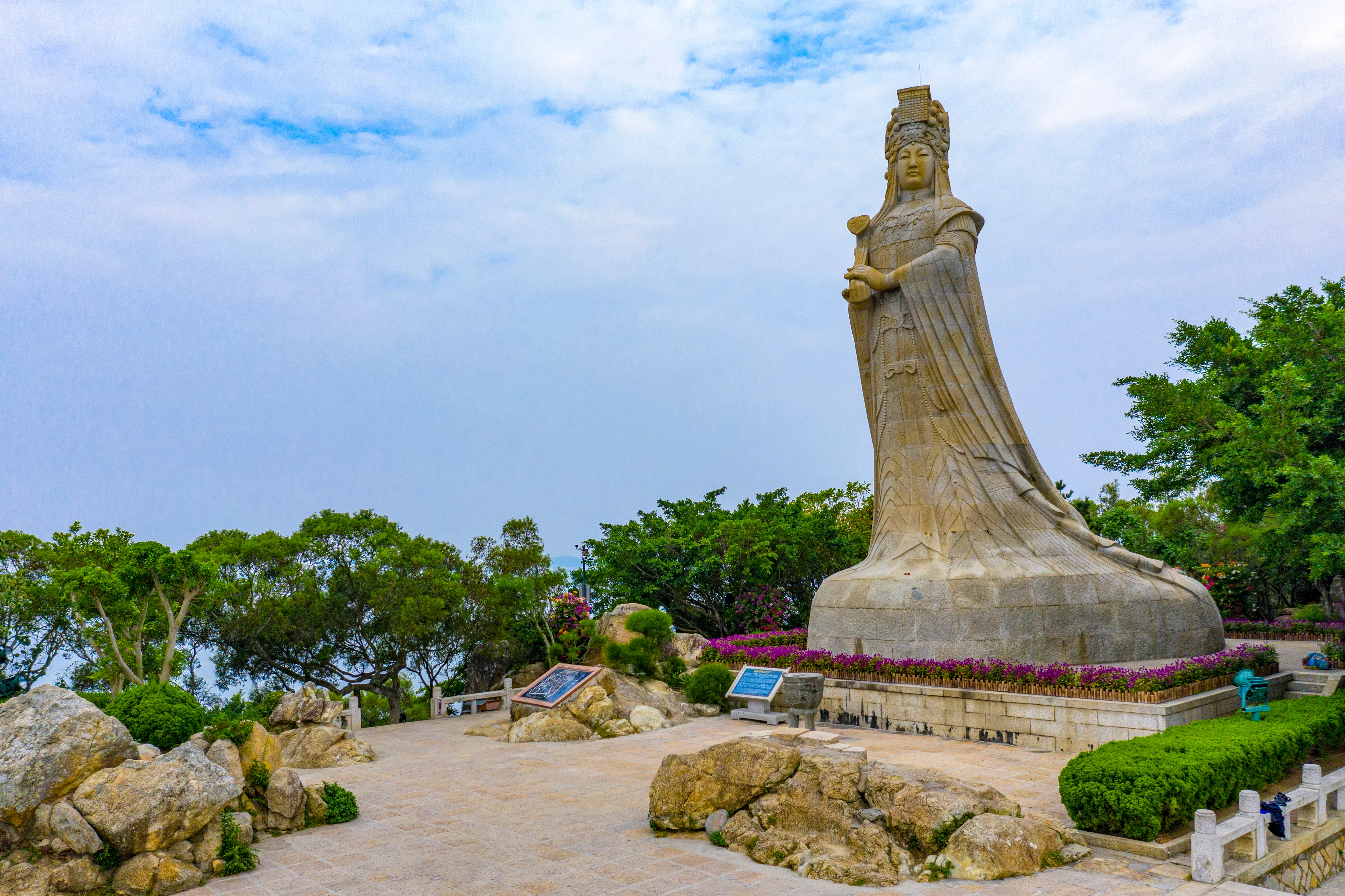Copyright scmp

A religious ceremony honouring the Chinese sea goddess Mazu, which was promoted by Beijing as a symbol of cross-strait ties, has caused fresh concerns in Taiwan. The goddess is revered as a protector of fishermen and sailors and has millions of worshippers in eastern and southeastern parts of the Chinese mainland as well as in Taiwan. Last Wednesday, the authorities in Meizhou, a city in the mainland province of Fujian where Mazu is believed to have been born, staged a celebration to mark the 1,038th anniversary of her deification. The event attracted more than 5,000 worshippers, including 600 from Taiwan, according to the island’s media. It was followed by a tourist festival and cultural forum dedicated to Mazu on Sunday that was attended by more than 800 academics, officials, overseas business leaders and cultural representatives. The authorities said the cult could serve as a “spiritual bond to unite the hearts and souls of overseas Chinese and promote mutual understanding and affinity across the [Taiwan] strait”. However, before the celebrations, the Taiwanese Mainland Affairs Council warned that “so-called exchanges in a system with no religious freedom would have political purposes”. In response, Chen Binhua, a spokesman for Beijing’s Taiwan Affairs Office, said most of the religious beliefs in Taiwan originated in the mainland, and the original Mazu temple was located on the mainland. “It is the sincere spiritual need of our Taiwanese compatriots to travel to the mainland for pilgrimage, exchanges, root-seeking, ancestor worship and prayers for peace. What’s wrong with that?” he said. He also accused Taiwan’s ruling party, the Democratic Progressive Party, of “spreading the poison of hatred and fear in pursuit of independence”. The mainland authorities have been expanding the scope of cultural events related to Mazu in recent decades, according to Kwok Shing Chan, an associate professor at the Department of Sociology, Academy of Geography, Sociology and International Studies at Hong Kong Baptist University. “It began with Taiwanese coming to pay homage to the goddess, but nowadays it could also be a bit of sightseeing or seeing the developments on the mainland,” he said, which might worry the Taiwanese authorities. Chan said the mainland authorities had been deliberately vague in the way they described such activities, saying they were “a visit back to the parental home” for Taiwanese. Other projects dedicated to the goddess, who is known as Tin Hau in Hong Kong, are also being developed on the Chinese mainland, including an artificial intelligence version of Mazu designed to talk to tourists that was developed by Putian University in Fujian. A commercial and residential community is being built in Meizhou, Mazu’s hometown, for people across the Taiwan Strait, while China’s first satellite that monitors ocean wind and waves has been named after the goddess. According to the Taiwan Information Environment Research Centre, a Taiwanese civil society organisation, about 16,000 worshippers took part in religious activities on the mainland last year.



